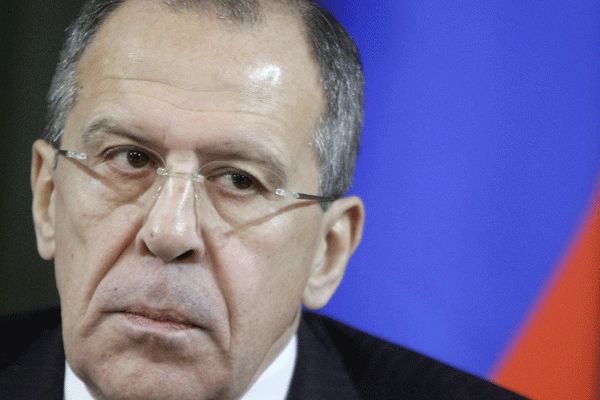Russia accused the West on Monday of blackmailing Moscow over a new UN Security Council resolution on Syria, stressing its firm stance on the crisis.
Russia accused the West on Monday of blackmailing Moscow over a new UN Security Council resolution on Syria, stressing its firm stance on the crisis.
Foreign Minister Sergei Lavrov accused the West of making an extension of the UN observers mandate in Syria conditional on Russia agreeing sanctions against Damascus.
In a press conference hours ahead of talks with UN-Arab League Syria envoy Kofi Annan in Moscow, Lavrov said that the Syrian President Bashar al-Assad would never quit as he still retained popular support.
"To our great regret, we are witnessing elements of blackmail," Lavrov said.
"We are being told to either agree to the approval of a resolution that includes Chapter 7 (that provides for possible sanctions), or we refuse to extend the mandate of the observer mission.”
"We view this as a completely counterproductive and dangerous approach," Lavrov added.
Annan, who is due to have a working dinner with Lavrov later Monday before meeting President Vladimir Putin on Tuesday, is visiting Moscow with his peace plan to end the violence in Syria.
On the idea that Moscow and Beijing were supporting President Assad, Lavrov angrily rejected the suggestions, saying Russia was pursuing an even-handed approach in contrast to the West's support of the opposition.
"I will repeat -- we are not supporting Bashar al-Assad. We are supporting what everyone else is -- the peace plan of Kofi Annan," said Lavrov, adding it was "particularly wrong" to blame Russia and China for the bloodshed.
The foreign minister stressed that it was "unrealistic" for Western powers to expect Russia to convince Assad to step down simply because Moscow is a long-standing ally of Damascus.
"We hear comments like the 'key to a Syrian solution is to be found in Moscow'. Then it is explained to us, when we ask about this, that it means that we (Russia) have to convince Assad to step down of his own accord," said Lavrov.
"It is simply unrealistic. And it is not a question of our inclinations, our sympathies or our antipathies,” he added.
"He (Assad) will not leave power. And this is not because we are protecting him but because there is a very significant part of the Syrian population behind him."
